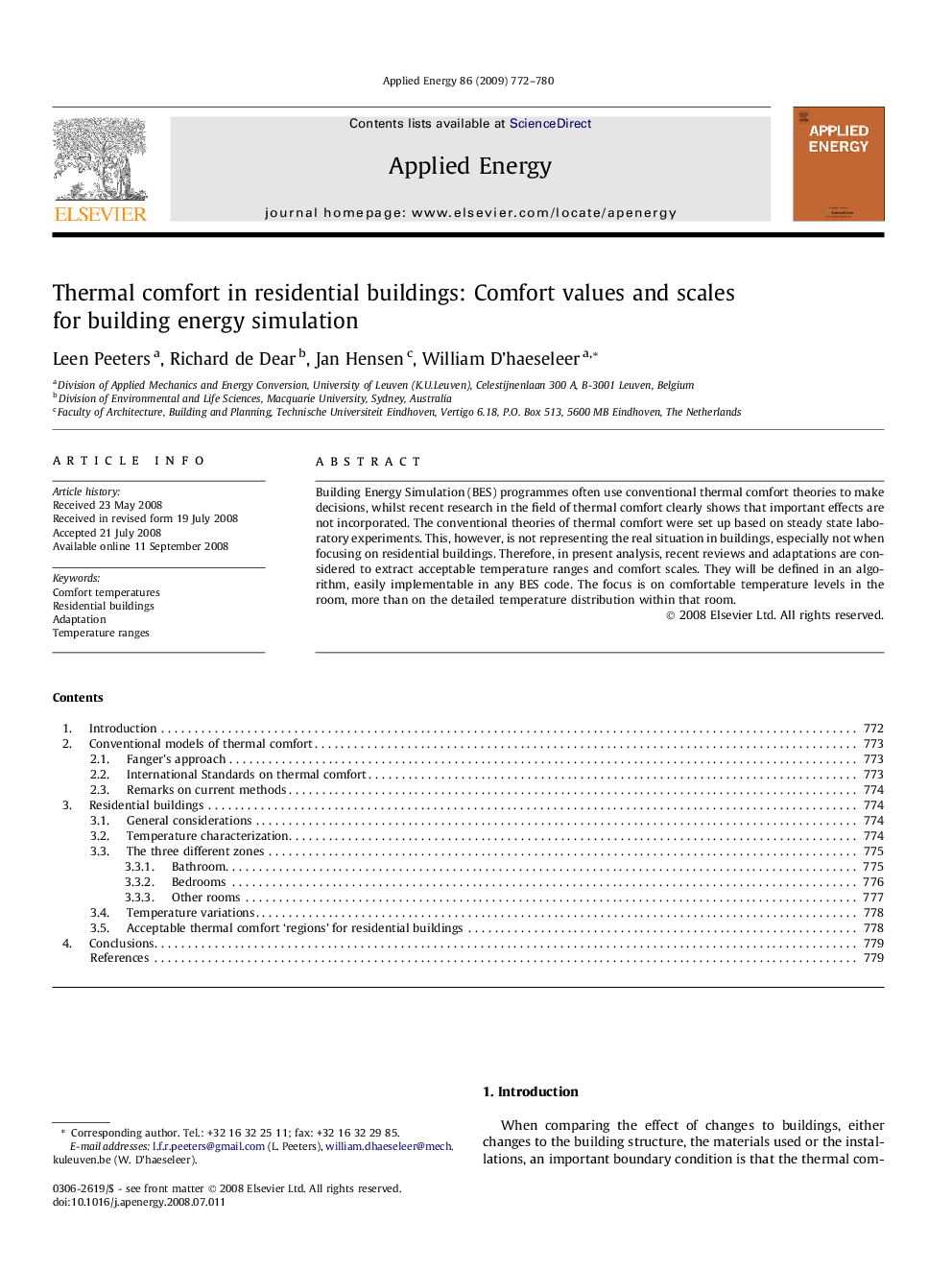| Article ID | Journal | Published Year | Pages | File Type |
|---|---|---|---|---|
| 245168 | Applied Energy | 2009 | 9 Pages |
Building Energy Simulation (BES) programmes often use conventional thermal comfort theories to make decisions, whilst recent research in the field of thermal comfort clearly shows that important effects are not incorporated. The conventional theories of thermal comfort were set up based on steady state laboratory experiments. This, however, is not representing the real situation in buildings, especially not when focusing on residential buildings. Therefore, in present analysis, recent reviews and adaptations are considered to extract acceptable temperature ranges and comfort scales. They will be defined in an algorithm, easily implementable in any BES code. The focus is on comfortable temperature levels in the room, more than on the detailed temperature distribution within that room.
